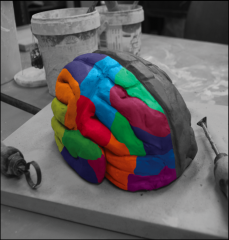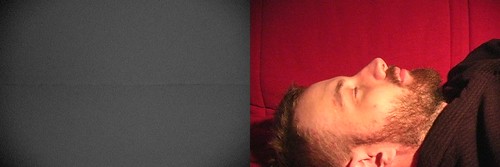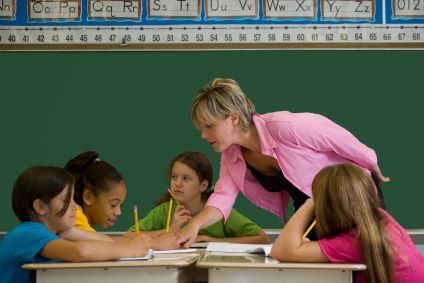Published: October 9, 2009

Washington University School of Medicine in St. Louis
Spontaneous brain activity formerly thought to be “white noise” measurably changes after a person learns a new task, researchers at Washington University School of Medicine in St. Louis and the University of Chieti, Italy, have shown.
Scientists also report that the degree of change reflects how well subjects have learned to perform the task. Their study is published online this week in the Proceedings of the National Academy of Sciences. [continue reading…]
Published: September 16, 2009
 Reading a book by Franz Kafka –– or watching a film by director David Lynch –– could make you smarter!
Reading a book by Franz Kafka –– or watching a film by director David Lynch –– could make you smarter!
According to research by psychologists at UC Santa Barbara and the University of British Columbia, exposure to the surrealism in, say, Kafka’s “The Country Doctor” or Lynch’s “Blue Velvet” enhances the cognitive mechanisms that oversee implicit learning functions. The researchers’ findings appear in an article published in the September issue of the journal Psychological Science. [continue reading…]
Published: November 18, 2008
 Sleep helps the mind learn complicated tasks and helps people recover learning they otherwise thought they had forgotten over the course of a day, research at the University of Chicago shows.
Sleep helps the mind learn complicated tasks and helps people recover learning they otherwise thought they had forgotten over the course of a day, research at the University of Chicago shows.
Using a test that involved learning to play video games, researchers showed for the first time that people who had “forgotten” how to perform a complex task 12 hours after training found that those abilities were restored after a night’s sleep. [continue reading…]
 To encourage and help teachers become more involved and enthusiastic about “inclusive teaching”, the Economic and Social Research Council (ESRC) recently funded an action research based project. Action research can be explained as making changes and studying the impact of those changes in order to bring about an environment where students feel included in their learning process.
To encourage and help teachers become more involved and enthusiastic about “inclusive teaching”, the Economic and Social Research Council (ESRC) recently funded an action research based project. Action research can be explained as making changes and studying the impact of those changes in order to bring about an environment where students feel included in their learning process.
According to the project’s Co-director Dr Susan Davies, of Trinity College, Carmarthen, “Action research is an opportunity for teachers to look at their practice, reflect on it, and improve on it.” [continue reading…]




